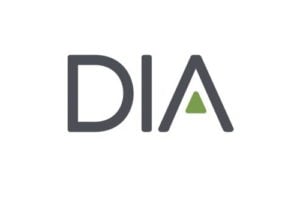Nick Sykes of Pfizer discusses the European Commission’s intention to “future-proof” the EU regulatory system and the suggestions for changes that were discussed througout the DIA Europe 2022 meeting. From the May edition of DIA’s Global Forum magazine.
In its Pharmaceutical Strategy, the European Commission intends to “future-proof” the EU medicines regulatory system. What does that mean for a system that has existed for more than two decades but has constantly evolved as science, technology, and societal expectations have changed? DIA Europe 2022 featured much discussion on what “future-proofing” looks like.
The innovation industry provided suggestions for changes to the EU regulatory system in response to the Commission’s open public consultation during the fourth quarter of 2021. These proposals were discussed throughout the DIA Europe 2022 meeting and included the following priorities for the Commission to focus on.
Better Use of Available Expedited Regulatory Pathways
The European regulatory system provides several pathways that can expedite the development and approval of innovative medicines (Conditional Marketing Authorisation, PRIME, Accelerated Assessment). However, they have been underutilized by regulators in the EU, particularly when one considers the use of comparable pathways in other regions. The EMA’s PRIME scheme is a case in point; entry into the scheme is unclear, with most applications denied entry. In addition, it is the author’s view that PRIME’s value in accelerating patients’ access to innovative products has yet to be truly determined. Giving PRIME some legislative legitimacy, with better-defined high-level criteria for entry and guaranteed eligibility for the Accelerated Assessment programme, may help to drive PRIME status to the level of a US Breakthrough Therapy Designation (BTD).
At DIA Europe 2022, several regulators agreed that expedited regulatory pathways need to be used in a smarter way. However, acceptance needs to come with safeguards for regulators to be able to stop the assessment of applications based on immature dossiers. Most pharmaceutical companies strive to ensure that their MA (Marketing Authorisation) dossiers are mature enough to “tell the story”; therefore this simple, resource-saving ask from regulators should be acceptable.
Process, Time, and Responsibility for Issuing the MA Decision
Since 1985, medicines authorized at the EU level have had to endure several months’ delay before being made available to patients after the EU’s regulators have declared the product to be safe, efficacious, and manufactured to a high-quality standard due to the Commission decision-making process. One group has estimated that for just 11 recent oncology products this delay could account for 18,600 years of lives lost. During the COVID-19 pandemic, the process was expedited to less than one day for vaccines, demonstrating that it is possible to shorten timelines significantly without affecting the quality and rigor of scientific review. A more radical approach would be to transfer the authority to issue the Marketing Authorisation decision to the EMA, removing an unnecessary and delaying point of handover.
EU Regulators’ Participation in Global Benefit-Risk Assessment Collaborations
Several sessions at DIA Europe 2022 referred to the recent and increasing trend for regulators from countries with more mature regulatory systems to collaborate on benefit-risk assessments. Such approaches include the ACCESS Consortium (collaboration among Australia’s Therapeutic Goods Administration, Health Canada, Singapore’s Health Sciences Authority, the Swiss Agency for Therapeutic Products [Swissmedic] of Switzerland, and the Medicines & Healthcare products Regulatory Agency of the UK) and FDA’s Project ORBIS (with all of the ACCESS agencies plus Brazil’s National Health Surveillance Agency and the Israel Ministry of Health Pharmaceutical Administration). Participants at DIA Europe 2022 highlighted that the EMA and EU regulators are absent from these collaborations.



